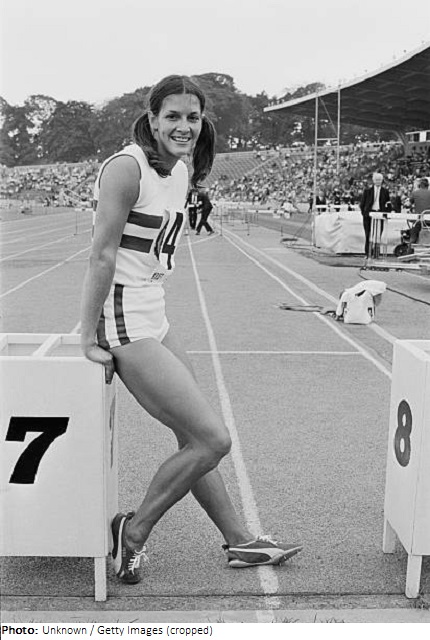
| Roles | Competed in Olympic Games |
|---|---|
| Sex | Female |
| Full name | Judith Ann "Judy"•Vernon (Toeneboehn-) |
| Used name | Judy•Vernon |
| Born | 25 September 1945 in St. Louis, Missouri (USA) |
| Measurements | 170 cm / 60 kg |
| Affiliations | Mitcham AC, Sutton (GBR) |
| NOC |  Great Britain Great Britain |
Judy Vernon was born in the United States and educated at Cleveland High School, St Louis. She later went to Southern Illinois University, as did her future husband, Nottinghamshire-born John Vernon who finished third in the 1967 NCAA triple jump. The couple were married in 1969, when Judy then became a British citizen. They returned to England in the early 1970s, and Judy joined Mitcham AC. A few months later she was runner-up in the 1971 WAAA 200m hurdles, and that same year she made her England international début.
She was runner-up in the WAAA 100 hurdles in 1972 before beating Mary Peters into second place to win the title in 1973. Vernon was runner-up again in 1974 and 1976 (she missed the 1975 season to have her first baby). She also won the WAAA indoor 60m hurdles title in both 1973 and 1974 (with a national indoor record 8.3 in the latter year), and was also runner up in the 60m flat in both those years.
Having competed at the 1972 München Olympics, schoolteacher Vernon won her only international gold medal when capturing the 100 hurdles title at the 1974 British Commonwealth Games in Christchurch. Additionally, she won a silver medal with the England sprint relay team. Also in 1974, Vernon finished fourth in the 60 hurdles at the European Indoor Championships at Göteborg (Gothenburg), and at the European Championships in Rome, was eliminated in the 100 hurdles semi-final.
Personal Bests: 100 – 11.8 (1972); 100H – 13.0 (1974).
| Games | Discipline (Sport) / Event | NOC / Team | Pos | Medal | As | |
|---|---|---|---|---|---|---|
| 1972 Summer Olympics | Athletics |  GBR GBR |
Judy Vernon | |||
| 100 metres Hurdles, Women (Olympic) | 5 h1 r1/3 | |||||
| 4 × 100 metres Relay, Women (Olympic) | Great Britain | 7 |
Date of birth also seen as 22 September 1945. After checking multiple sources, we feel that the DOB listed above, which is found in Commonwealth Games data, is likely correct.